“You’re Not Wrong.”

We are our own worst critics. Really. But we don't have to be.
Sometimes the hardest voice to quiet isn’t the loudest one in the room. It’s the one inside us. The one that echoes when someone says,
“You’re wrong.”
You feel it in your gut. Your chest tightens.
Shame starts whispering.
Am I a failure? Did I mess everything up?
Maybe I don’t belong here after all.
But here’s the question I want you to sit with:
Whose voice are you really listening to?
Is it the critic who doesn’t know your heart?
The people-pleasing part of you that fears rejection?
Or the voice of God—steady, loving, and unwavering?
Psalm 16:11 tells us something powerful:
“You make known to me the path of life;
you will fill me with joy in your presence…”
That means our grounding doesn’t come from applause.
It doesn’t come from performance.
It doesn’t come from anybody else’s words.
It comes from the presence of God.
People Always Have Their Opinions
That’s ok. But you are in charge of what you spiritually filter to determine what God says about how you’re leading your ministry.
He doesn’t say, “You’re wrong” to shame you.
He says, “This is the way. Walk in it.”
There’s a big difference.
So when someone says you’re off course, pause.
Check the source.
Is this correction or control?
Is it truth or projection?
Is there any biblical relevancy?
Line it up and learn what God says, move on.
Your spiritual worth is not determined by somebody’s words or opinions
Truth builds. Shame tears. God builds.
Practical Application for Worship Leaders
1. Ministry Insight:
When criticism comes—from your team, congregation, or inner critic—filter it through God’s voice first. Journal the feedback, pray over it, and ask, “Is this helping me walk closer with God or pulling me away?”
2. Spiritual Growth Tip:
Start every week by reading Psalm 16:11 aloud. Let it ground you in God’s joy and guidance. When lies try to hijack your calling, speak truth over yourself. Write your own version of the verse as a daily reminder.
3. Team Culture Practice:
Normalize asking, “Is this feedback helpful or hurtful?” Create space for honest, grace-filled reflection on the team. Build trust by leading with humility, not fear of being wrong
Challenge:
This week, notice how you respond when someone questions you. Don’t rush to react, defend or freeze. Instead, take one breath.
Ask Yourself:
Whose voice do I believe right now?
Is it God’s, or fear’s?
Choose one moment this week to say no to shame and yes to joy—even if you’re still learning.
Let Psalm 16:11 be your anchor. Joy is not proof that you’re perfect. Joy is proof that you’re present with the One who is.
“You make known to me the path of life; you will fill me with joy in your presence, with eternal pleasures at your right hand.” - Psalms 16:11
- Branon Dempsey
Does this content resonate with you? Then drop a comment below 👇
Worship Team Training is your page to like, share & follow!
✅ Want to go deeper? Ask today about our 1-to-1 worship leader Mentoring Program
#WorshipLeaders #Worship #Pastors #WorshipDevotional #WorshipCulture #SpiritualFormation #worshipteamtraining
Copyright 2025 Branon Dempsey / Admin by Worship Team Training
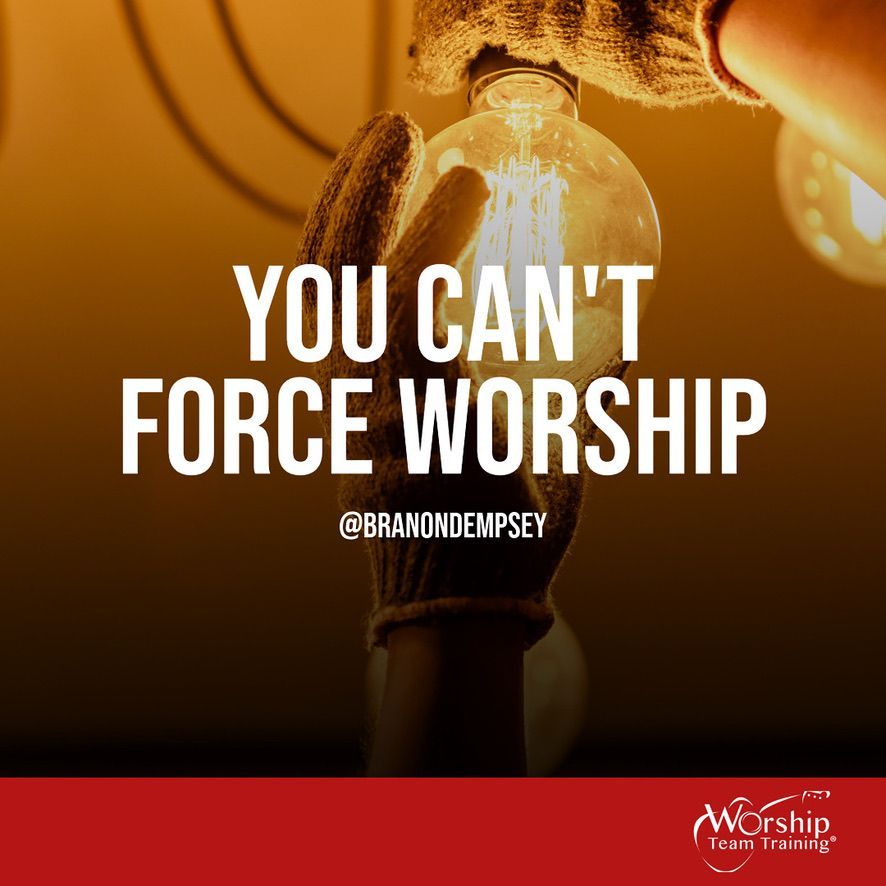
If you’ve ever asked, “Why don’t they respond?” “Am I doing something wrong?” or “What more can I do?” then this article is for you. Stop The Angst with Your Congregation You step onto the platform, the lights are up, the team is tight, and the transitions are smooth. You’re ready. You give it your all—vocally, spiritually, and emotionally. And then you look out and see blank faces. No one’s clapping. No hands are raised. Some people aren’t even singing. It can feel discouraging, and if we’re honest, maybe even a little personal. You’re not alone in that. This is a common, quiet frustration that most worship leaders feel but rarely discuss. If we don't address it properly, it can eat away at our joy, confidence, and even our calling. Psalm 127:1 reminds us: “Unless the Lord builds the house, the builders labor in vain.” Worship Isn’t Measured by Movement Psalm 127:1 tells us that we don’t build this alone. The same applies to worship. You can lead with excellence. You can prepare, rehearse, and pray. But at the end of the day, you are not responsible for someone else’s response to God—that’s between them and the Holy Spirit. Worship isn’t always loud or visible. Some individuals may be deeply reflective while others express their joy through movement. Some worship with hands raised, while others may be crying silently. You can’t force worship; you are to help to create an environment where freedom can thrive. What if the quietest person in the room is worshiping the deepest? Know This: you never know what people are going through. Your job is to meet them where they are. And when they give you permission, you can take them where they want you to go. Things You Can’t Control Let’s reiterate for the leaders in the back: a lack of expression doesn’t always indicate a lack of engagement. Someone can be fully immersed in God’s presence while sitting still, eyes closed, and heart open. If we expect everyone to express worship like we do, we risk making worship about appearance instead of authenticity. It’s okay to be passionate and expressive, but it’s also okay that not everyone reflects worship the same way you do. Things You Can Control This doesn’t mean we shouldn’t challenge our people or call them higher, but challenges must come with care. As worship leaders, we set the tone, but we don’t create the Spirit. Ask yourself: - Are we leading with invitation or expectation? - Are we giving people space to encounter God on their terms, not ours? - Is worship feeling like a performance test or a sacred moment? Creating a safe and engaging worship environment doesn’t mean pushing people into responding; it means inviting them to step into God’s presence without pressure. You create the space. God does the change. The Senior Pastor is the Worship Leader - as the church-whole You’re not the only one responsible for the culture of worship. The overall heartbeat of corporate worship is shaped significantly by the senior pastor. Consider: - Is your pastor engaging in worship publicly? - Do they speak about worship from the pulpit? - Do they partner with you to shape worship culture, not just service flow? The more aligned the leadership, the more freedom the church can experience. Worship Team: Stay Rooted If you’re a team member or leader reading this, you play a significant role too. When people see authenticity from the team, it gives them permission to let their guard down. Here’s how to live that out: Be Consistent in Private and Public Worship If you only sing when you’re on stage, something isn’t right. Let your worship be genuine from Monday to Saturday so it flows naturally on Sunday. Don’t “Fake” Expression There’s no need to perform. Raise your hands because you’re moved, not because you feel expected to. Worship from a real place, and people will notice the difference. Look for Heart over Hype Don't fall into the trap that an emotional response equals spiritual depth. Some of the deepest worshipers may be the quietest in the room. You’re the worship leader, not the worship forcer. Let’s be honest—this can still be challenging. You’re putting in the effort, seeking God, and wanting to see transformation. But transformation takes time, and cultural change doesn’t happen overnight. Here’s what to do when you feel discouraged: - Pray for your people by name. Don’t just lead them; carry them. - Celebrate the small wins—one hand raised, one person singing. That’s progress. - Let go of the pressure. You’re not a failure because they’re quiet. - Keep showing up. God values your faithfulness more than your results. Your Challenge: Here’s your challenge: shift your focus. Instead of watching for hands raised, start looking for softened hearts. Pay attention to the conversations that happen after the service, the silent tears, or the person who didn’t sing before but is now whispering the lyrics. Ask God to help you love them where they are—not where you want them to be. And consider: “What kind of worship leader would I be if I never saw the results I hoped for but still knew God was using me?” BONUS: Download This Companion Podcast - Branon Dempsey

You don’t need to lead worship to be loved. In fact, this is the wrong motivation to lead worship. You don't have to prove your worth to be seen. You are already enough. The God who called you understands the difference between a polished voice and a sincere heart. Leading worship is not about executing a flawless setlist; it’s about showing up authentically at the table. Let’s Face It Performance can easily creep into our mindset. Before you know it, you start measuring your value by how smooth the transitions are, how well the band sounds, or how many hands are raised in worship. Your confidence can rise and fall with attendance numbers, compliments, or the silence that follows a challenging Sunday. Somewhere along the way, what began as a calling transformed into a scorecard system. Seeds of doubt about measuring up take root in your mind, and suddenly, you find yourself not just leading worship but performing for approval—whether it's from the congregation, your pastor, or even God. It’s time to uproot those misconceptions! Here’s the undeniable truth: none of that is sustainable. When worship morphs into a performance, your soul is left abandoned backstage. God isn’t interested in your polish—He seeks your presence. The platform isn’t a stage for impressing Him; it’s a space to reflect Him. If you’re leading while trying to prove you’re enough, it will eventually lead you to a wall that may manifest as burnout, resentment, or self-doubt whispering, “You’re only as good as your last set.” Performance Doesn’t Equal Purpose This is where vulnerability plays a crucial role—the courage to show up and be visible, regardless of the outcome. Genuine leadership in worship isn't solely about singing or speaking from the stage; it’s about leading your team with authenticity. It’s about admitting when you’re tired, addressing issues head-on instead of sweeping them under the rug, and having the tough conversations that foster growth and connection. That’s the kind of leadership that truly transforms—not because it’s perfect, but because it's real. Consider the people you’re leading every week. Your team doesn’t need a superhero; they need someone genuine. They need a leader who prays with them during difficult times, models grace when mistakes are made, and understands that obedience exceeds performance. They need to see that vulnerability is the highest form of worship and that your worth is anchored in Christ, not in your microphone. Let’s get straight to the point: Are you leading with confidence and security, or are you merely performing for approval? Are you seeking genuine connection with your team, or controlling outcomes to dodge discomfort? Do you speak about worship as a lifestyle but only embody it on Sundays? I Challenge You These questions challenge you to lead from a place of courage—not from the safety of the spotlight, but from the strength found backstage. You might have been sold the lie that showing struggle means losing credibility. But consider this: What if revealing your weaknesses is exactly what your team needs? What if they are waiting for you to take that first step, to demonstrate that true leadership isn’t about having all the answers, but creating a culture where everyone feels safe to question, learn, and grow? You may wonder where the spiritual aspect fits in. Some might dismiss this as merely emotional leadership talk, yet it is profoundly spiritual. God is not swayed by your platform; He is focused on your heart. Remember what He told Samuel when selecting Israel’s next king: “People judge by outward appearance, but the Lord looks at the heart” (1 Samuel 16:7). That truth is timeless. God sees through the performance; He is moved by genuine surrender. Ask Yourself: When do you feel most like you’re worshiping God? Is it on stage, during soundcheck, or in the quiet of the morning when no one is looking? Are you leading worship from a heart that is full, or one that is frantic? Do you feel compelled to keep everything under control to earn respect, or are you allowing God to lead through your vulnerabilities? What could transform in your ministry if you embraced vulnerability over performance? What if you frequently acknowledged “I don’t know”? What if you fostered an environment where your team could share their fears, doubts, and personal lives—not just show up for rehearsals and click tracks? Be Reminded: Real leadership—Kingdom leadership—embraces those moments. It leans into the discomfort and says, “I’m here to serve, not to control.” Jesus modeled this perfectly. He didn’t demand perfection from His disciples; He met them in their doubts, challenged them, but never led through fear. He led through relationship, connection, and love, making it clear that no one has to earn their place at the table. You don’t have to be perfect to lead worship. You don’t have to perform to be loved. God’s not asking for your polish—He’s asking for your presence. Your team doesn’t need a superhero. They need someone real. Someone who knows how to show up—even when life is messy. Stop rehearsing your worth. You already have it.
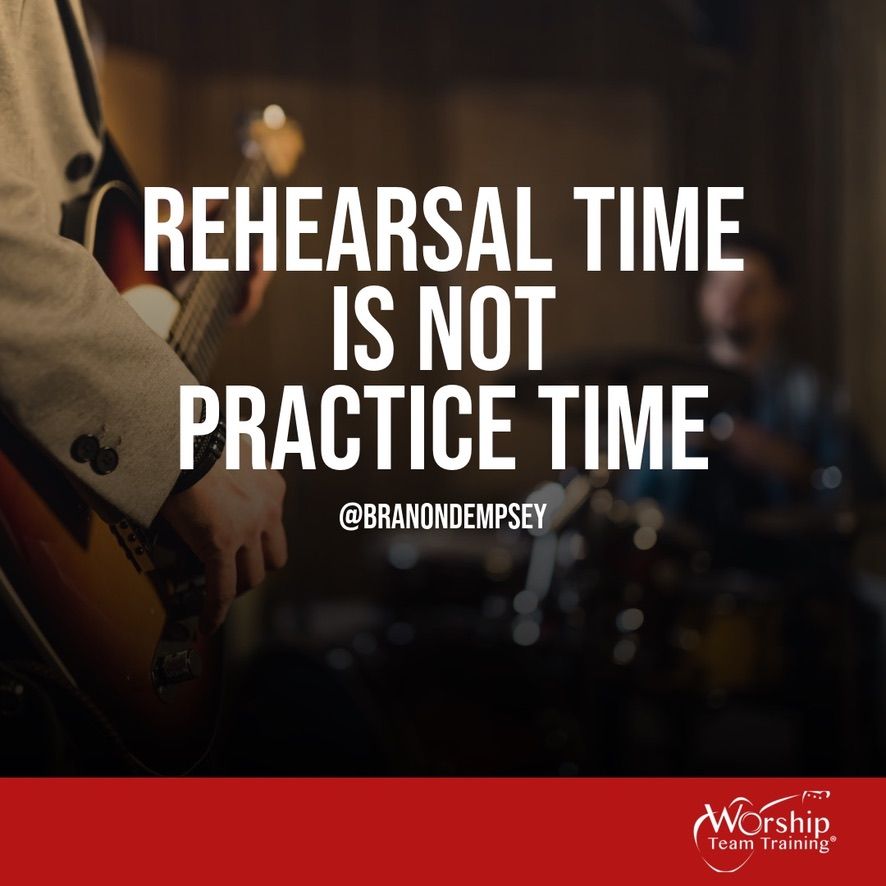
How To Not Suck Rehearsals! Rehearsals aren’t just where the music comes together. It’s where ministry takes shape. Let’s be clear: Rehearsal time is not practice time. Practice is what you do before rehearsal, then you rehearse what you’ve practiced. As worship leaders, we often carry the weight of Sundays on our backs. But if we think rehearsal is the only space where preparation happens, we’re already behind. Real preparation? That happens on Tuesday mornings, in prayer. It happens after work, learning the bridge. It happens during the week—before the chord charts are opened and before the first downbeat hits. In this article, I want to show you how to run rehearsals that not only prepare your team musically—but spiritually. Because what happens in the room is directly connected to what happens in the hearts of your people before they ever arrive. And trust me—I learned that the hard way. Story: When Rehearsals Fell Apart I remember leading my first team in my early twenties. I had all the enthusiasm in the world—and none of the experience. Week after week, I’d walk into rehearsal with high hopes and an open binder, ready to bring excellence. But my team? They’d walk in late. Unprepared. No one knew the songs. Some hadn’t even opened the set list. Others had just finished work and were completely fried. I tried to be gracious, but honestly? I was frustrated. I started to wonder if anyone cared. I blamed them—at first. But then I took a step back. I looked at my own habits. I realized that I was preparing music, but I wasn’t living it. I wasn’t modeling what I wanted to see. So I made a shift. I started sharing scriptures with the team before rehearsal. I came early, ran through my parts, and prayed over the set. I sent notes during the week—not just with chord changes, but with encouragement and reminders of why we do this. And slowly, they responded. Rehearsals started to feel like worship. The music got tighter. The hearts got closer. We became more than a team. We became ministers. Why Midweek Preparation Matters: Rehearsals should not be the first time your team touches the music. We say this often: “Practice at home, rehearse together.” But how many times have you spent half your rehearsal correcting what could’ve been fixed earlier? When your team comes unprepared, it doesn’t just slow down the flow—it creates tension and discouragement. And whether they say it or not, it disrespects everyone’s time. Midweek preparation is two-fold: • Musical: Know your part. Practice transitions. Run the set as if you’re already on stage. • Spiritual: Meditate on the lyrics. Pray over the songs. Ask God what He wants to do with the set—not just through you, but in you. This combination sets the foundation for a rehearsal that feels focused, encouraging, and Spirit-led. Great worship teams don’t wing it—they work. Leading Rehearsals with Intention: So how do you run a rehearsal that works? Here’s what I’ve learned: 1. Start on Time. End on Time. Nothing says “I value you” more than being constantly late to rehearsal. You/they need to know that people’s time need to be honored. And when you are habitually late or unprepared, you’re putting yourself first, while putting your team last. Starting late sets the tone that the rehearsal is optional and irrelevant. Ending rehearsals late due to inefficient team members signals disorganization and shows lack of respect. Arrive early yourself. Set up the room. Get the vibe right before people walk in. My father is a military vet, and always taught me: Be the first one on the field and the last one to leave. 2. Begin with Heart, Not Chords Start with prayer or a short devotion. Share a verse that ties into the set or speaks to something on your heart. Even two minutes of spiritual focus can center the entire room. Remember: These are worship leaders—not just musicians. Help them step into that identity. 3. Work Through the Tough Spots First Some of the biggest problems in rehearsals is when the worship leader or music director is when they never stop the band when mistakes are made. If you never pause the song to fix the problems, you begin rehearsing mistakes. You can’t just “hope” the band will get it. Do the hard work and kindly address the problems. Don’t run the set top-to-bottom just for the sake of it. Focus on what’s not working. Is the tempo off in that chorus? Does the drummer need to hear how the bass locks in? Is there a tricky vocal harmony? Break it down. Rebuild it together. 4. Use Kind-Candor Speak truthfully when something needs fixing, but be kind, speak with grace. Instead of: “You’re off on that bridge again.” Try: “Hey, let’s slow that part down together and find where we’re missing each other.” Instead of: “That sounds horrible, you’re playing it wrong.” Try: “Hey, that passage needs a bit of fixing. Let’s play this through together to make it better.” Your words shape the atmosphere. Make them life-giving. 5. Record and Reflect Take a phone video of the rehearsal, or use a rehearsal app. Watch it later as a team or send notes. This creates feedback loops that actually help people grow. Ask questions like: • What flowed well? • Where did we disconnect? • How can we improve both musically and spiritually? Spiritual Growth for Your Team: Rehearsal is not just about Sunday—it’s about discipleship. When team members prepare spiritually during the week, the overflow shows up on stage. Encourage them to: • Spend 10 minutes praying over the worship set before rehearsal. • Read scripture connected to the theme of the music. • Keep a “worship journal” with reflections, verses, or lyrics that move them. When the team is spiritually aligned, the technical problems shrink. When the heart is strong, the music follows. Practical Tools You Can Use: • Planning Center / Set Lists: Share early. Include scripture notes or theme ideas. • Midweek Email: Send encouragement and specific prep notes. • Shared Spotify Playlist: Help team members rehearse to the same version of the song. • Group Chat: Share prayer requests and check in with each other. • One-on-Ones: Meet briefly with new team members to help them grow in both skill and soul. Challenge: Model what you want your team to become. Prepare early. Dig deep into the music and even deeper into God’s Word. When you show up full—not burned out or behind—you invite your team to do the same. And if they don’t catch it right away? Keep modeling. Keep pouring in. Lead with love and truth. Over time, people rise to what you consistently show them. Rehearsals Are Sacred Ground: Not because of what you play—but because of who you’re becoming. If your team is committed to growing spiritually during the week and learning their parts with diligence, you’ll see Sunday mornings transform. You’ll move past stress and into surrender. Past chaos and into clarity. Yes—blessing, honor, and talent are gifts from the Lord. But passion, authenticity, and skill? Those are the fruits of a soul that’s rooted in Christ and devoted to the call. You are today’s modern-day Levite. Build a worship team that prepares with purpose. Practice is part of your spiritual walk, not separate from it. Let your rehearsals be full of heart, excellence, and clarity. Bottom Line: Honor the time. Do the heart work. Watch what God builds.

Whose Worship Service Is It Anyway? Sometimes the loudest critic isn’t someone in your team, your congregation, or your inbox. It’s the one who lives rent-free in your own head. It whispers at night when you replay the rehearsal that didn’t go right.
It pipes up after service when someone gives you “feedback” that cuts a little too deep.
It lingers when you're left wondering:
“Did I blow it? Was that the Holy Spirit or just me trying too hard?
Am I even called to this anymore?” That’s not just self-doubt. That’s the internal critic, and it’s relentless. But here’s what I want you to know today: You are not meant to live led by shame. You are called to be led by joy. Who are you really listening to? Criticism is part of leadership. Correction is essential for growth. But there’s a difference between conviction and condemnation. And who you listen to makes a big difference. One draws you closer to God.
The other pushes you into hiding. So the real question becomes:
Whose voice are you really listening to? Is it the voice of someone who doesn’t know the full story?
Is it the part of you that’s terrified of disappointing others?
Or is it the steady, loving, unwavering voice of God? Psalm 16:11 says: “You make known to me the path of life; you will fill me with joy in your presence, with eternal pleasures at your right hand.” Did you catch that? The path of life is made known in God’s presence. And His presence fills you with joy—not fear, not guilt, not shame. So, if the voice you’re hearing isn’t filling you with joy… it’s not His. People Always Have Opinions And they’re allowed to. But just because someone says something about you doesn’t mean it belongs to you. You are in charge of what you spiritually filter. You get to decide what has permission to shape your heart. That’s not being prideful. That’s being spiritually grounded. God doesn’t say “you’re wrong” to shame you.
He says, “This is the way. Walk in it.” (Isaiah 30:21) There’s a world of difference. So when criticism comes—and it will—pause. Ask Yourself: * Is this correction or control? * Is this truth or someone’s projection? * Does this align with Scripture, or does it feed fear? Hold the feedback up to the light. If it reveals something real—confess, learn, grow, and thank God.
If it’s rooted in control, fear, or manipulation—release it. Don’t let someone else’s insecurity shape your identity. Your Worth Is Not on Trial You don’t have to hustle to prove that you’re called. You don’t have to perform to be loved. You don’t have to get everything right to be anointed. You already are. Your spiritual worth is not determined by how many people liked the setlist, or whether the team hit every harmony, or if the service ran perfectly on time. Besides, if the person judging does have a problem with worship, then it may mean that they shifted their focus away from heavenly things, and got trapped up in earthly demands. Big Question: Who’s Worship Service Is It Anyway? Your worth is grounded in this:
God chose you, called you, and delights in walking with you. Not because of your performance, but because of your presence with Him. Truth builds. Shame tears. God builds. Always. Practical Application for Worship Leaders Let’s bring it down to earth. Here's how to walk this out when your inner critic gets loud or feedback comes in sideways: 1. Ministry Insight: When criticism hits—whether it’s from someone else or your own thoughts—don’t just react.
Pause. Pray. Journal the feedback. Then ask: “Is this helping me walk closer with God or pulling me away?” Let that question be your compass. 2. Spiritual Growth Tip: At the beginning of each week, read Psalm 16:11 out loud. Let the words remind you where your joy comes from. Then, personalize the verse. Here’s a sample: “God, You show me where to go. You give me joy just by being near You. I don’t have to earn it—I just have to be with You.” Keep it somewhere visible—on your mirror, in your planner, on your phone lock screen. Let it rewire how you talk to yourself. 3. Team Culture Practice: In team meetings or one-on-one conversations, try this phrase: “Is this feedback helpful or hurtful?” Make space for honest, grace-filled reflection. Model what it means to receive input without shame, and offer input without control. That kind of culture doesn’t happen by accident. It starts with leaders who lead from identity, not insecurity. Challenge: A One-Breath Practice This week, when someone questions you—whether it’s about a decision you made, a song you chose, or how you handled a moment—take one breath before you respond. Then ask yourself: Whose voice am I believing right now?
Is it God’s… or fear’s? Let that one breath be your sacred pause. The space where shame can’t win. The moment where joy gets the final word. Final Word: Let Joy Lead Shame will always say, “You’re not enough.”
Fear will always say, “What if you mess it up again?”
But God says, “This is the way. Walk in it.” And in that walk, you’ll find what Psalm 16:11 promises: “You will fill me with joy in Your presence…” Joy doesn’t mean everything’s going perfectly.
Joy means you’re not walking alone. Joy is not the reward for being flawless.
Joy is the fruit of being faithfully present with the One who is. So take a deep breath. Shake off the shame. And walk in joy. You're not perfect. You're present. And that's exactly where God meets you. God has already qualified you; there's no need to prove it.

We’ve all been there. The service ends, and you've poured your heart out, giving everything you had. Then, someone says: “Too loud today.” “Not enough hymns.” “You seemed off.” “Why do we always do that song?” It’s painful to give your all, only to have it picked apart. Even when we tell ourselves we’re fine, the sting lingers. We’re human. We care. And sometimes, that’s the hardest part. Psalm 118:6 says, “The Lord is with me; I will not be afraid. What can mere mortals do to me?” What Matters Most? David understood something we often forget: while people may have their opinions, God stands with us. Opinions will always exist. They come with the territory of leadership. The bigger truth? These opinions are not obstacles; they are not gates that can halt the work God is doing. They are simply noise—echoes of insecurity, unmet expectations, or a desire to feel in control. This doesn’t mean we stop listening altogether. However, it does mean we get to choose whom we listen to. There’s a difference between helpful feedback and shame disguised as criticism. For example, “I missed that old song” is a connection, while “You’re ruining worship” reflects a desire for control. As worship leaders, we’re not here to please people—we’re here to serve God and shepherd hearts. Sometimes, that will mean disappointing people with grace. Let’s be honest: we’ve all tried to mold ourselves into something others want us to be. We’ve attempted to be less expressive or more traditional, less spontaneous or more polished. It’s exhausting. You weren’t called to be everyone’s favorite; you were called to be faithful. - Not every opinion deserves your energy. - You are called to please God. - People’s preferences are not your purpose. Practical Steps: - Curate your inner circle. Surround yourself with trusted voices who know you and can speak truth into your life with honesty and love. Not every comment deserves a place at your table. - Lead from your identity, not from insecurity. Spend time in prayer before each rehearsal and service to ground yourself in who you are in Christ—not who others want you to be. - Debrief intentionally. After each service, reflect on what happened. Ask yourself what felt good and what needs to grow, not from a place of fear, but from a desire to grow in God. - Start each day this week with Psalm 118. Speak it aloud and remind yourself that you are not alone. - Fast from people-pleasing for 7 days. When the urge to over-explain or over-apologize arises, take a breath and let it go. - Journal daily about what God says about you, not what others say. Write it until you truly believe it. Here’s the hard truth: you can either lead with your eyes on God or with your eyes on the crowd. You can’t do both. This week, make a choice. Let every song, every setlist, and every imperfect moment be an offering—not a performance. Stand firm in who God made you to be, and trust that it’s enough.
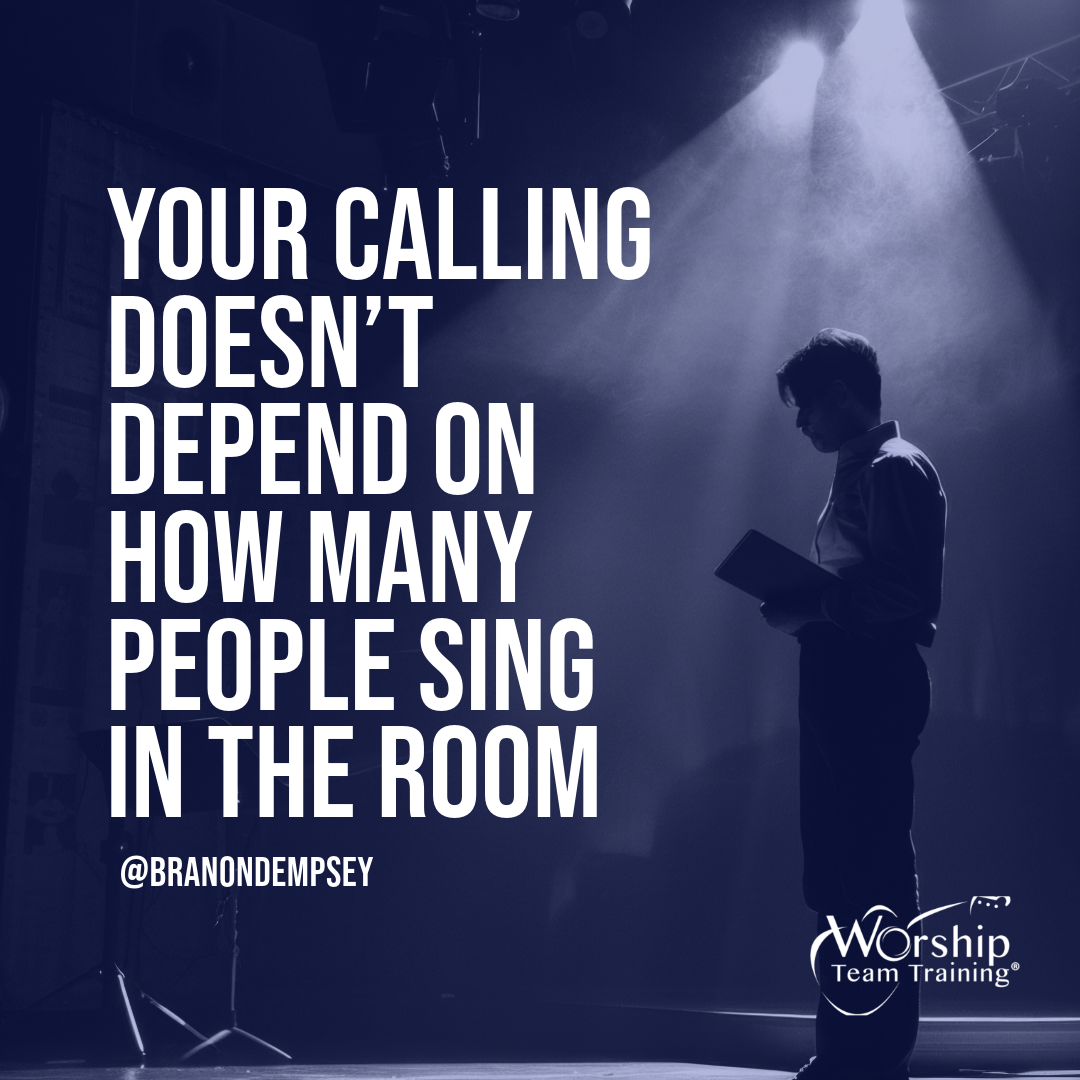
One Thing It can change everything about the way you lead worship—and no, it’s not a better arrangement, smoother transitions, or even a team that shows up on time. It’s an undivided heart. The kind of heart that doesn’t flinch at uncertainty. That isn’t obsessed with performance. The question doesn’t drive that, “Did it go well?” but instead lives and leads from the deeper question: “Was I faithful?” Psalm 86:11 says, “Teach me your way, Lord, that I may rely on your faithfulness; give me an undivided heart, that I may fear your name.” Let’s be honest. So many of us have learned to rely on outcomes—how the service flowed, if the vocals were tight, if the tech worked without glitches. These things matter. But they are not most important. We live in a culture—even within the Church—that celebrates the external win over the internal formation. Here’s what no one tells you: You can lead a flawless service and still leave the stage completely disconnected from the God you just sang about. That disconnect is where burnout lives. It’s where resentment festers. It’s where comparison takes root. But what if you stopped measuring your success by applause, by perfection, by how many people were “moved,” or especially by your own standards? Is There a Scoreboard? Do you get points on the following: Did I show up with a whole heart today? Did I stay present with God? Did I not sweat when things went wrong? This is what an undivided heart does. It doesn’t compartmentalize. It doesn’t perform faith while ignoring doubt. It brings the whole, messy, honest self to God. And then to the team. And then to the congregation. It’s vulnerable. It’s unpolished. It’s real worship. Jesus wants your whole heart Let’s Get Practical: 1. Prioritize time alone with God over planning. Planning is sacred—but not more sacred than presence. Get quiet with God before you get strategic with your team. 2. Redefine a “win.” At the end of every service, ask: Did we honor God’s presence? Were we connected as a team? Did I worship, or just lead? 3. Speak from your scars, not your script. People don’t need a perfect leader. They need a present one. Let your story and your struggle point to God’s faithfulness. 4. Build team culture around formation, not function. Yes, rehearse. Yes, train. But also, check in with hearts. Pray together. Debrief emotionally—not just musically. For Spiritual Growth • Practice silence weekly. Let go of the need to produce and simply listen. • Journal your leadership struggles. Notice where you’re performing instead of being. • Ask for accountability. Have one person who asks, “How’s your heart, not just your setlist?” • Sabbath. No shortcuts here. If you’re leading from an empty soul, you’re not leading at all. Stop measuring your ministry by the highs and lows of each Sunday Go All In Stop auditioning for God’s approval. You already have it. Stop trying to impress your church. They need your presence, not polished perfection. Go all in. Bring your fear. Bring your fatigue. Bring your doubt, your joy, your hunger, your tired hands, and your weary heart. God doesn’t need your perfect performance. Leading worship is not about how well you execute the plan. It’s about how well you stay rooted when the plan succeeds or fails. Yesterday’s service was either a powerful source of encouragement or a challenge that left you feeling a bit drained. It might have been both. Regardless of how smoothly you navigated transitions or the unexpected hurdles you faced, today marks the beginning of the real work. Monday matters because it sets the direction and vision for where you want to be by the upcoming Sunday. This is your moment to reset. Remember, your strength comes not from yesterday’s outcomes, but from being firmly rooted in God’s Word today. “Teach me your way, Lord… give me an undivided heart.” — Psalm 86:11 Stay grounded. Grow steady. - Branon Dempsey

Worship Is Humility on Its Knees What we do onstage only matters if try to live life surrendered offstage. Here’s what most won’t tell you: Worship isn’t about how high you can sing or how tight your transitions are. It’s not about vibes or viral moments. “May the words of my mouth and the meditation of my heart be pleasing in your sight, Lord, my Rock and my Redeemer.” – Psalm 19:14 Worship is about posture—your heart on its knees before the King. We’ve built stages that look amazing. We’ve polished our teams. We’ve scheduled services down to the second. But what if the one thing we’re missing is the one thing God wants most? Humility. Not the false kind that shrinks back. But the holy kind that falls forward. The Weight of Worship Is Too Heavy for Ego You can’t carry pride into the presence of God. It cracks under the weight of glory. And here’s where it gets raw: We don’t always know we’re carrying it. We start out leading worship to serve. Then somewhere along the way, we start needing the affirmation. We start chasing the moment instead of the One who makes the moment matter. But real worship doesn’t need a spotlight. It needs surrender. It begins with “Search me, God.” It ends with “Not to us, but to Your name.” Psalm 19:14 doesn’t say “may the crowd love the set.” It says: “May the words of my mouth and the meditation of my heart be pleasing in your sight.” This is personal. This is sacred. And this is why humility isn’t optional—it’s the only way in. Worship Isn’t a Role. It’s a Response. You don’t lead worship because you’re gifted. You lead because you’ve been gripped by the gospel. Your songs are shaped by your secret place. Your leadership flows from your repentance. You can’t take people where you haven’t gone. When was the last time you knelt—really knelt—without a mic, without a team, without a plan? Not because it looked good, but because you felt small in the best way. That’s worship. That’s where power is born. Real Worship Is Loud in the Quiet We think power shows up in volume. But often, the most powerful worship sounds like silence. The kind that says, “God, I have no words. Just take everything.” That’s the moment your pride dies—and your ministry comes alive. When worship leaders lead from a place of humility, the room changes. It’s no longer about performance. It becomes presence. And presence can’t be manufactured. It comes when God recognizes Himself in your posture. Practical Ways to Lead from Humility Let’s ground this. Here’s how to stay on your knees—even when you’re holding a mic: 1. Confess Before You Rehearse. Open your team meetings with real heart-checks. Not “how’s your week?” but “where’s your heart?” Start with repentance. 2. Take the Lowest Seat. Choose the back of the room. Carry cables. Show up early. Not because you’re less—but because Jesus washed feet, and so can you. 3. Break the Platform Mentality. Remind your team often: we don’t perform—we participate. We don’t build a set—we build an altar. 4. Live Offstage Like It Matters More. Because it does. Integrity fuels authority. Private surrender fuels public leadership. A Challenge for You This week, don’t focus on sounding better. Focus on bowing lower. What we do onstage only matters if try to live life surrendered offstage. Take 15 minutes before your next service. Go find a quiet room. No phone. No guitar. No production checklist. Just you and the Lord. Pray: “God, reduce me. Replace anything in me that craves credit with a heart that longs for communion.” Let your next set be shaped by that kind of worship. The kind that trembles. The kind that’s costly. The kind that looks like Jesus. Final Words Worship that’s driven by pride will burn you out. But worship led from humility will set you free. Don’t settle for polished. Go for presence. Don’t aim for excellence without awe. Let your heart break open on your knees—because that’s where worship begins. You’re not leading people to music. You’re leading them to surrender. So start with your own.
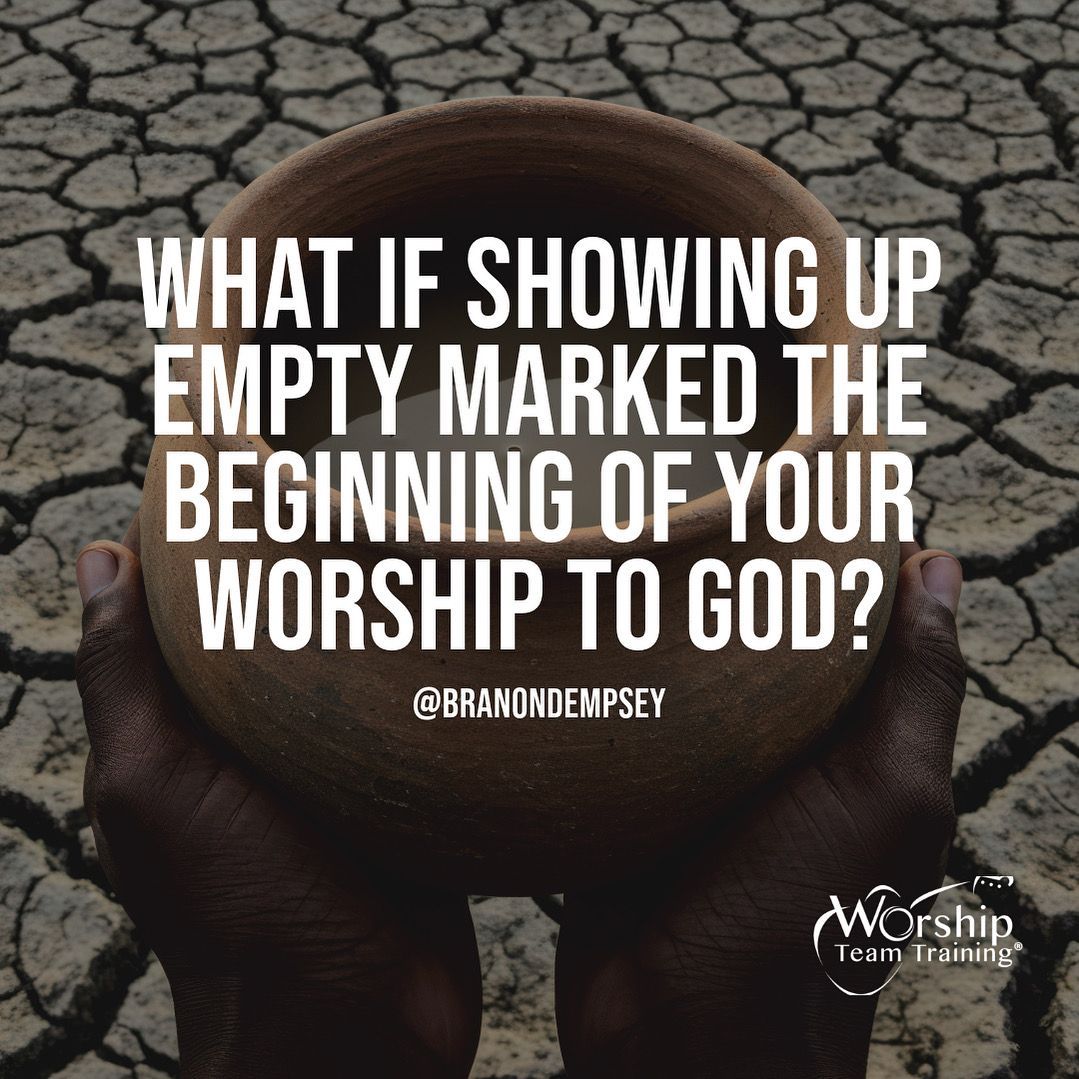
I understand the struggle of showing up to worship when life feels heavy. There are days when I don’t have the energy to lead with passion, not because I don’t love God, but because my spirit feels parched. However, here’s the profound truth: God meets you where you are, even in those moments of weariness, and especially then. What If You Showed Up Anyway? Let’s face it: many of us have dragged ourselves to lead worship on days when our souls are starving. You’ve prayed with weary lips, smiled while feeling hollow, and opened services quietly asking, “Where are You, God?” And yet… You still showed up. That matters more than you can imagine. Faith isn’t always fiery; it often looks like perseverance in the face of fatigue. “As the deer pants for streams of water, so my soul pants for you, my God. My soul thirsts for God, for the living God. When can I go and meet with God?” — Psalm 42:1–2 Worship doesn’t always manifest as a shout. Sometimes, it’s a deep sigh. And God hears both. Worship Isn’t the Reward—It’s the Response Psalm 42 doesn’t declare, “My soul dances for God.” It proclaims: “My soul pants for You.” No pretenses, no polished performance. Just raw, breathless longing. That’s the essence of real worship in the wilderness. You come empty, you show up exhausted—and God meets you there. Not because you’ve performed perfectly, but because He loves you enough to satisfy your thirst. When you stop striving to “feel spiritual” and embrace your truth, the Holy Spirit begins to do what only He can: Refresh, refill, and restore. More Than A Feeling—It’s a Promise We've mistaken presence for emotional experience. The Holy Spirit doesn’t come and go based on how “into it” we feel. He isn’t defined by goosebumps or chills during a chorus. He is the Living Water that flows unceasingly. Sometimes, when you’re worn down and barely hanging on, He finds you first. You thought you were seeking Him, but in reality, He was already pursuing you. Real Worship Leaders Lead From Real Places You're not just leading songs; you’re modeling surrender. So, if all you have this week is a quiet whisper of, “God, help,” lead from there. If all you can offer is a heart that showed up despite feeling nothing, lead from that place. Don’t try to perform healing you haven’t received. Lead with honesty. Lead from your place of need. God often accomplishes more through your vulnerability than through your most polished rehearsals. Those you lead don’t need a perfect worship leader; they need someone present, someone who understands what it’s like to thirst for God and still choose to sing. Pathways to Lead Worship leaders, here’s how to infuse this truth into your ministry and your soul: 1. Start Your Rehearsal With Silence Allow the first minutes to be still. Don’t rush into warmups. Sit with God, open your hands, and let your team breathe. Invite the Spirit to guide you before the setlist. 2. Share Honestly With Your Team Model vulnerability. If you’re tired, say it. If you’re struggling, name it. Give permission for your team to show up as they are. That’s when worship becomes sacred, not staged. 3. Create a “No Mic” Time Weekly Just you and Jesus—no rehearsing, no planning. Show up with your soul and let it be enough. 4. Pray Psalm 42 Out Loud Speak it slowly and meditate on it. Let it guide not just your worship theology but also your heart posture. Steps for Spiritual Growth: Show up before God, even when you feel empty. Turn off the lights. No music, no preparation. Just sit on the floor and share what’s dry, what aches, and everything that feels heavy. Don’t fake a fire. Offer Him your thirst. Then let God find you. Let Him refill what life has drained away. Allow the Holy Spirit to rejuvenate what you felt was lost. Then respond. Worship—not because you feel like it, but because He is always worthy. Final Thought: You are not less spiritual because you feel empty; you are human. You are not disqualified from leading because you’re weary; you are real. And real worship flows from real need. So come thirsty. Come worn. Come genuinely. Let Him handle the rest because He always will. You’re not chasing after God. He’s already running toward you.

Let’s be honest: leading worship is not for the faint of heart. Neither is ministry alone. You are God’s modern-day Levite. You show up with vulnerability. You show up balancing the tension between Spirit and structure. You give the best of yourself each week and fight battles to serve God in worship. The struggle is real. Sometimes, you’re the first to arrive and the last to leave, feeling physically exhausted and spiritually spent. You keep the team together, take criticism, smile through your own heartbreak, and then do it all again the following week. Some Sundays feel like revival, while others feel like survival. I want to talk about those survival Sundays—the ones where a storm rages quietly inside you. On those days, you walk onto the platform, carrying a storm in your soul, and still say, “Let’s worship.” "Here’s a truth that remains unchanged, regardless of the weather: He is your shelter." The Weight You Carry There’s a unique loneliness in leadership, especially in worship ministry. You’re seen but not always known; you’re heard but not always understood. The songs you lead stir up healing for others while you silently grieve your own losses. You carry pain that doesn’t fit into lyrics or flowcharts and wonder if anyone notices that you’re hurting too. But God does. Isaiah 4:5–6 says: “Then the Lord will create over all of Mount Zion and over those who assemble there a cloud of smoke by day and a glow of flaming fire by night; over everything, the glory will be a canopy. It will be a shelter and shade from the heat of the day and a refuge and hiding place from the storm and rain.” Let’s unpack this passage. It paints a picture of God’s active presence—visibly covering His people, surrounding them with a canopy of glory. A shelter. A shade. A refuge. A hiding place. You might not always feel covered, but you are. You’re Not Weak As worship leaders, we often believe we have to be the strong ones. We lead people to God, so we should be okay, right? But Scripture never asks you to be unshakable; it asks you to abide. There’s a huge difference between holding it all together and hiding under His covering. When the heat of pressure bears down—whether it’s due to expectations, comparisons, or unspoken criticism—God offers you shade. Not a place to fake it, but a place to rest. When the storm hits—whether due to conflict in the team, a hard season at home, or that anonymous email that stole your sleep—God offers you a hiding place. Not to run away, but to recover. "You don’t have to tough it out. You’re allowed to be human. You’re allowed to need God’s shelter. That does not make you a weaker leader; it makes you a more honest one." The Canopy of Glory I love the word “canopy” in this verse. In Hebrew, it’s “chuppah,“ referring to a bridal covering—a symbolic tent where a covenant is made. In other words, God’s covering is personal, relational, and intimate. It’s not a cold, indifferent umbrella. It’s a place where God says, “I choose you. I will not leave you exposed. I will not let you do this alone.” The glory of God isn’t reserved for the big worship moments when everything clicks. His glory shows up as covering—in the quiet, in the confusion, and in the moments where you’re running on empty but still choosing to show up. God’s glory covers you, even when the setlist goes off the rails, even when the tech fails, even when the feedback stings, and even when your hands are lifted, but your heart is breaking. His glory still rests on you. Storms Don’t Disqualify You They strengthen you. If no one has told you this lately, you can be in a storm and still be in the will of God. Think about Noah, Jonah, and the Apostle Paul. Just because they were in the tempest and the flood, didn't mean they were without God’s shelter. Jesus was right there with them. Too many worship leaders think they’ve failed when life gets hard, as if they did something wrong or are no longer worthy to lead. That’s shame talking—not Jesus. Jesus never said storms wouldn’t come; He said we’d have a shelter when they do. If the disciples got caught in storms while walking with Jesus, you’re in good company. The presence of the storm doesn’t mean the absence of God. In fact, it’s often the very place He reveals Himself most clearly. If you’re weathering a storm right now—internally, relationally, or spiritually—don’t give up. Don’t isolate, and please don’t let shame keep you from shelter. The Invitation: Come In From the Rain So let me ask you, leader to leader: - Where do you go when the pressure gets heavy? - Do you allow yourself to rest in His shelter, or do you keep performing? - Are you leading from overflow, or just surviving on fumes? God is not asking you to grind through this season alone. He’s saying: come in from the rain. Let Him cover you. Let Him be your hiding place. Let Him remind you that you’re not defined by your last set or your loudest critic. You are seen. You are safe. You are sheltered. Pray with Me: “God, be my shade when the heat of leadership wears me down. Be my shelter when the storms of life feel too much. Cover me with your glory—not because I earned it, but because I belong to You. Thank You for being my shelter.” Final Thought: Leadership is hard. Worship ministry is sacred ground, but also gritty ground. There will be seasons of fire and seasons of rain. But whatever the forecast looks like, remember: He is your shelter. Branon Dempsey

Some mornings, showing up can feel like a challenge. The setlist might seem uninspired. The team might be distracted. In those moments, it’s natural to question the impact of what you’re doing. You rehearse those songs. You lead with a smile. But deep down, you might feel drained or even wonder, “Is this enough?” You’ve reached your limits. You’ve poured out everything you have, yet it can still feel like something's missing. “To all perfection, I see a limit, but your commands are boundless.” - Psalm 119:96 Here’s the reality: perfection has its boundaries, and so do you. This isn’t a sign of failure. It’s simply being human. Consider this wisdom from Scripture: “Do not wear yourself out to get rich; do not trust your own cleverness.” - Proverbs 23:4 Though we’re not talking about financial wealth, we can draw a parallel to our pursuit of perfection. Don’t exhaust yourself trying to be flawless or pushing beyond your limits to deliver a perfect worship service. This passage encourages us to embrace God’s wisdom and recognize the importance of restraint. Remember this: You are not meant to shoulder everything. You’re not expected to be perfect. God’s capacity knows no bounds, and His words surpass our limitations. So don’t give up; instead, take a moment to pause. When your strength wanes, His remains. When your words may feel inadequate, His Word brings life. When your songs seem small, His Spirit moves powerfully. You don’t lead worship because you’ve got it all together. You lead because you know the One who brings everything together. You guide people to understand that God loves and accepts them just as they are—through their failures, disappointments, and struggles. Otherwise, we should not be singing the words of faith if we are not believing and demonstrating them ourselves. So pause. Don’t wear yourself out. Knowing your limits is a sign of being human and a faith of knowing God.
